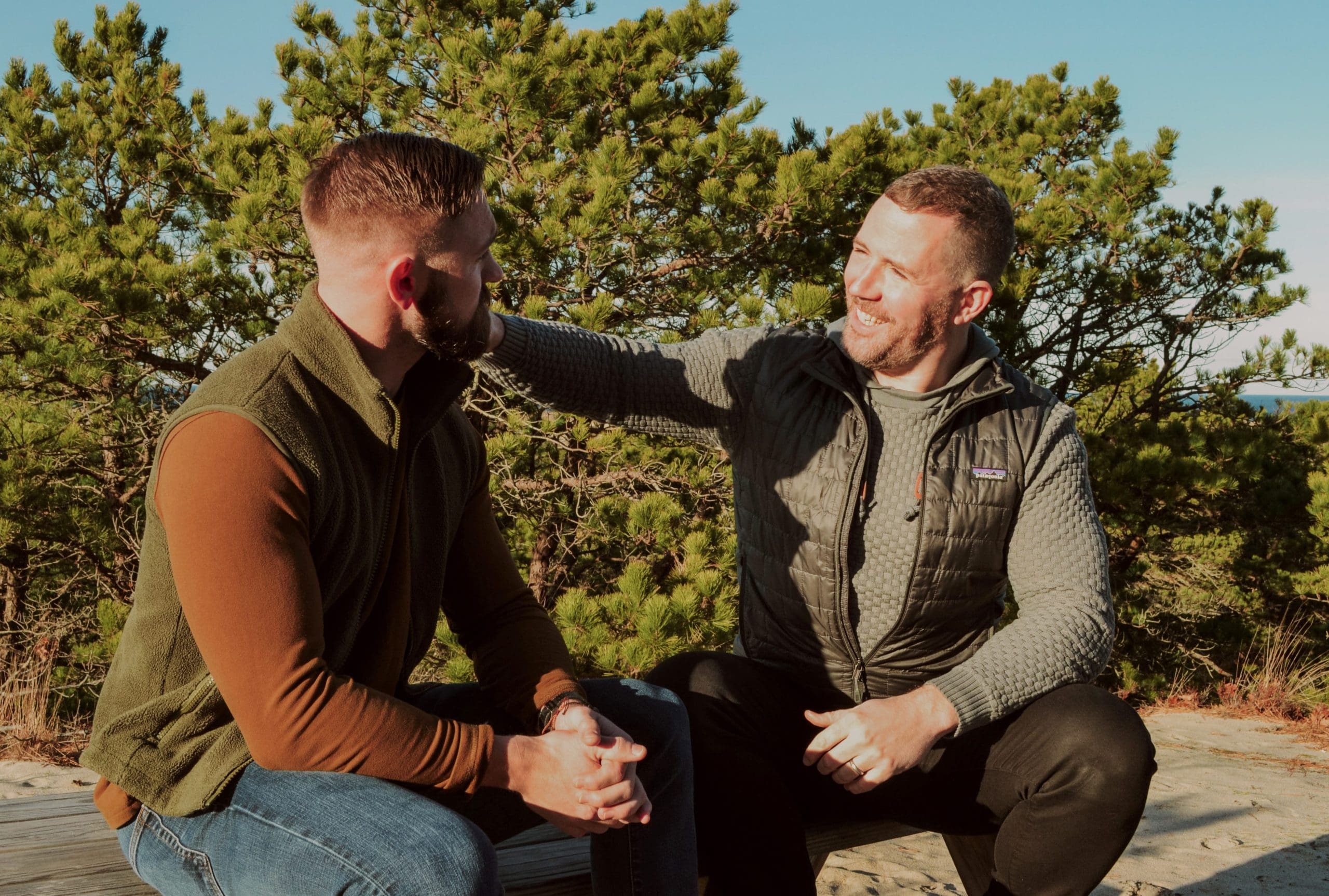
Men’s Work is for Both Queer and Straight Men
For decades, I was afraid of men. Particularly straight, cis-gendered men.
Growing up queer and in the closet, I was ridiculed for being different. Rather than being made to feel comfortable with my own true nature, I was made to feel that I was doing “it” wrong. I was told to be “more like the other boys”, reinforcing the notion that my difference was a problem to be overcome, rather than a uniqueness to be celebrated.
So when I first came to “men’s work” – particularly men’s-work-focused coaching programs – I recognized the opportunity I had to come to terms with and confront my long-held fear of men. This is straight men typically comprise the majority of participants in men’s work spaces. I initially assumed that these men, with different lived experiences from my own, must have a different set of struggles and challenges from my own.
It’s not only queer men who struggle with meeting the perceived societal standards of what it means “to be a man.”
How wrong my assumption was! Through men’s work spaces, I have come to realize that I have much in common with straight men. It’s not only queer men who struggle with meeting the perceived societal standards of what it means “to be a man.” So many of us, queer or straight, receive the message, “you’re doing this wrong.” My personal passion and purpose is to help heal the resulting wounds.
While there is no joy in knowing that most of us are struggling against a system that enforces the idea that we are “inherently lacking”, I began to see the power in being able to share my experience with other men and to listen in turn to their feedback and about their own experiences. After years of diving deep within myself and with others through men’s work, I recognize that many of us share this common struggle. A mantra of men’s work is, “one man’s work is every man’s work”, which speaks to the shared experience all men face.
That said, even with so much shared experience between my straight and queer brothers in men’s spaces, there remain some notable differences. In men’s work, there’s a “root question” that men seek to answer, and I think that this is different for straight and queer men. For straight men, the root question typically is “Am I man enough?” For queer men, in my experience the root question typically is “Am I a man?” The differences in these root questions are subtle, but they lead down very different roads.
For straight men, they struggle if they don’t confidently believe that the answer is yes to the question “Am I man enough?” There’s often a stigma to not being confident in the answer, so straight men often look to their family members, peers, communities, and role models for clarity. To discern what it means to be a man in each context they are in, these men may look to mimic the behavior of others they encounter, even if this comes at the expense of ignoring their own internal wisdom for what is their authentic self.
For the queer men I know, the next logical question after “Am I a man?” is “If I am not a man, than what am I?” For if I am not a man, then am I a brother, an uncle, a son, a nephew? Or am I something else – a demon, a sinner, a criminal? Can I be both sensitive and competitive? Can I be artistic? Can I be expressive? Can I find people who can understand and relate to these questions?
Queer men have a disproportionately higher likelihood of facing discrimination, hate, and violence. Consequently, queer men have had to protect themselves in a variety of ways, such as living in predominantly queer communities, creating a strong external appearance, and code switching (something that isn’t always possible) to name a few.
Creating a safe space for queer men to share their experience with others who understand is a first step. A leader in men’s work once said that “not all safe spaces are inclusive”, meaning that there may be times when a group needs to go by themselves to work. Working through the trauma of discrimination, hate, ridicule, and violence may be easier when shared with others who have lived that experience. Coming together in a group specifically for queer men may allow the safe space and a community that has been elusive for large parts of their lives.
Ultimately, though, queer men and straight men have more in common then they differ. Men’s work spaces speak a lot about expanding our nervous system’s ability to hold and process stimuli. We know that when we feel in danger it is harder to do things that aren’t specifically aimed at survival. Vulnerability, introspection, and reflection take a back seat to basic harm reduction. Men’s work spaces work because they build an intentional community based on integrity, trust, and support. Knowing that the person hearing your story understands you allows a fuller expression and transformation for all involved. We seek support while we also celebrate wins.
Queer men can benefit from sharing spaces with straight men. Most men share a desire to understand themselves and those around them, to express freely, and to unabashedly pursue their purpose. Coming together in men’s groups where the only criteria for participation is to identify as a man is a powerful method for healing and growth. In these moments we can begin to bridge the gaps in understanding and communication. Through transparency and authenticity, we can create powerful bonds of community among a diverse group of men.
There is value in our stories. There are expressions of bravery and valor that serve all that hear them. It is my aim to create safe spaces for queer men to explore and grow for their benefit and for that of our world.